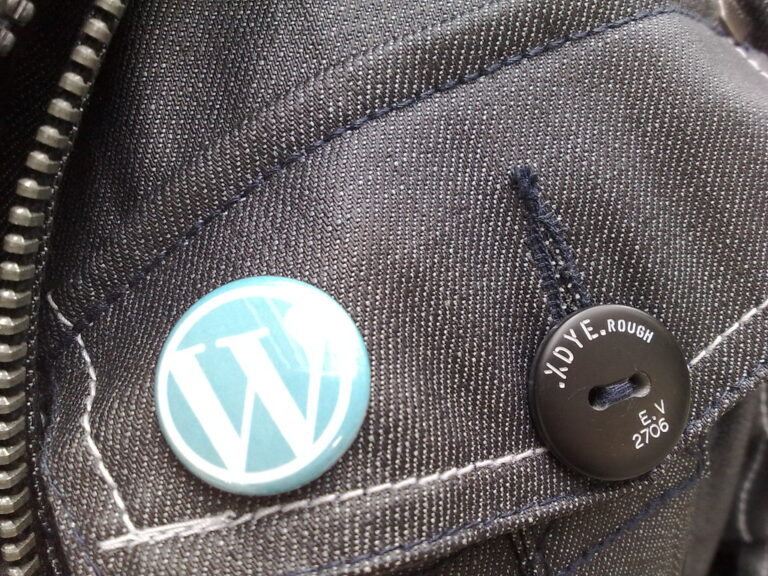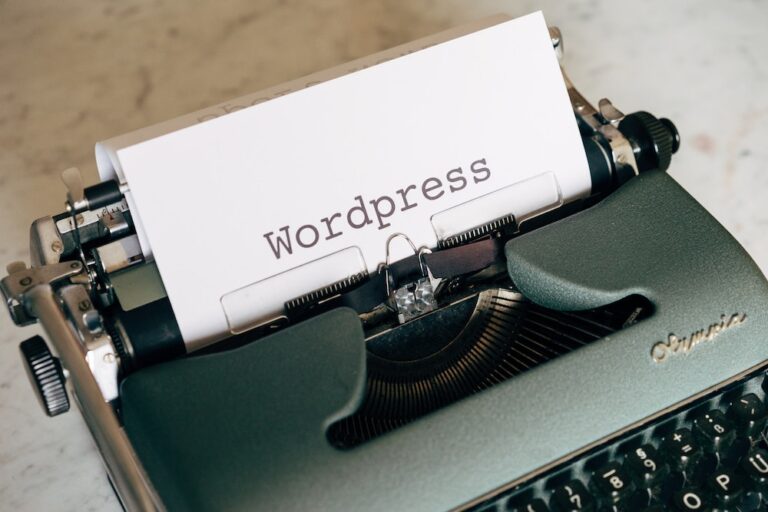17 Must Follow WordPress Tips For Bloggers
We all love to read, talk about various things, and write about them too. When you write a blog post you express your personal feelings for something, it may be a movie, book, a product that you are using, your smartphone, a WordPress plugin, or just about anything. You structure your blog posts properly and spend hours researching for that topic and then writing the real thing by giving your own personal touch.
If you are just a blogger on a blog/website then you might not care about how the blog has been set up or which all plugins & theme has been used. But if you are running and operating your own blog then you must follow some very important things. Many people actually ignore them and in the long run when they realize their mistake, they feel bad about it.
If you are reading this post then obviously you want to know the ‘must follow WordPress tips for bloggers.’ One thing I want to tell you in the starting itself is that all these points are very important and will help you, your website visitors, and search engines a lot. So don’t ignore them at all.
Update: I was just watching some videos on YouTube and found so many videos giving absolutely false information like you should write blog posts only focused on affiliate programs, don’t use photos in your posts, you should do extensive on-page SEO, and so on.
I just don’t know why people give false info and mislead other people. But I won’t do that ever and so here on this website, you will find only the best and most genuine information.
Not using your own domain and hosting
If you are just a beginner and trying your hand at blogging then you can opt for a free blog on WordPress or Blogger. But if you want to make it big as a blogger and want to reap the benefits of being one and are actually serious about making your own brand then free is not an option for you.
Though there are advantages of using a service like Blogger like free web hosting, a free subdomain, etc as it is powered by the Internet giant Google. Even WordPress allows you to create a free blog on its website. But I won’t recommend you a free hosted blog on any of the websites, not even Blogger. Why? Let me give you an example.
I am sure you must be knowing about Orkut and Google Plus. Both were very popular social networks by Google. Millions of people were active users on these social sites but even then both of them were shut down. Though Orkut has been revived by its original owner now, it is nowhere near what it was earlier. The same thing happened with the first social network, MySpace. Are you able to understand what I am trying to tell you here? When such huge sites can go down then how can you be so sure that their other services like Blogger will be online forever?
Moreover, since you are using their resources they can all suddenly decide that your blog isn’t fit for their network or that it does not meet their terms of service or anything else. All your hard work will be deleted in an instant. Do you want this to happen? No! So never trust any of the free services and get your own domain and hosting for your website/blog. This should be the second step when you start a new website, the first step is thinking about a niche in which you want to share your views and other valuable information.
Using a Free Theme
Free! Who doesn’t like free stuff? You, me, and everyone else do. But, with free WordPress themes, there is some or other loophole. Designers generally build these free themes keeping absolute beginners in mind. That is actually a good thing.
If you are a fresher then using a free theme is highly recommended. The themes available inside WordPress are quality checked by the good people at WordPress and you have the assurance that all these themes will work just fine. Yes, they won’t have advanced features and/or support for your favorite must-have plugins, but other than that for a basic blog these themes are just fine.
But, if you are not a beginner then a free theme is not meant for your website. The main reason is that normally all these themes do not have any of the advanced features which a more complex website needs. The features are limited and lack that professional touch because of their over-minimalist nature.
Free themes are not unique. Some WordPress themes have over 1 million downloads and even if only half of the people who have downloaded it are actually using it, then also the number is huge. That makes your site just another WordPress blog in actuality.
Another big disadvantage of using a free theme is that most of them are rarely updated and this is a major problem. Since the themes are not updated they can lose compatibility of certain plugins. And even more worrisome is that they might just not work with the newer versions of WordPress CMS.
Free themes generally don’t have any support forums dedicated to them. You can find help online by searching for any issue on Google etc but again no proper support is time-consuming and also kind of frustrating. Finding a developer or paying someone to do small edits and more is also another blow to your pockets.
SEO optimization though not very important these days, but still, the paid themes are created keeping it in mind. Free themes, well there is nothing to talk about it here!
Free themes not found on the official theme depository might be poorly coded(buggy), which could also make your site vulnerable to security issues.
Also, remember this: not all free themes are created equal (there are different WordPress licenses) so when you download a theme, it’s best to know what you can legally do with it.
Lastly, these themes can and generally have links to other websites in the footer or even popup ads, etc codes injected in them. I am sure you don’t want that for sure.
Instead, I would recommend you go for a paid professional theme.
Overcustomizing your theme
If you choose a free or paid theme (that depends on you), don’t spend a lot of time customizing it. I have also spent hours and hours of time doing so. I am not saying that you pick an ugly or ‘ancient looking’ theme and live with it, but what I am telling you here is that pick a theme that you like and then do as little as you can in customizing it. Spending much time on it won’t help your website in any way.
We all have to understand that people come to our websites to get the information they are looking for and not to see the design and layout. So instead of spending many hours customizing your theme, it is advisable that you spend that time writing awesome new content and sharing your posts on social networks and other places.
Moreover, over-customizing your theme might lead to design issues later when the themes are updated by the developer even if you use child themes. So it’s better to be safe than sorry.
Also, keep in mind that most people these days visit your website on a smartphone.
Using too many plugins
Plugins: You love them, you hate them, but you can’t ignore them. At the last count on the WordPress official repository, there were approx. 54901 plugins are available for download. Now you aren’t going to download and use them all but I am very sure that you will download a bunch of them. Plugins extend the functionality of a WordPress website and people get carried away very easily looking at them.
Choose just a few plugins that are actually needed for the smooth functioning of your website. And even after that, if you feel that the purpose of the website is not solved and you still need 1 or 2 extra plugins then you must download and use them too.
Installing too many plugins will only make your website heavy and will increase its loading time. Nobody likes to visit a slow website.
Not setting up Permalinks
Don’t be that person who just installs WordPress and starts working on it – writing posts and sharing on Facebook, etc. Take out some time to set up some basic yet important things. Permalinks are one of the most important things that you should change the moment you install WordPress.
Some people use the predefined permalink structure (the one which is set up automatically at the time of installation). Nobody should use it. In fact, WordPress should remove it altogether. Again ‘over customizing’ is not recommended at all. You can just choose the ‘Post name’ option here and use that on your website. It is simple and uses the title of your post.
As you can see in the screenshot above you have various other options too like; day and name, month and name, and numeric and custom structure. But I would suggest that you just go with the post name option here. If your website is news-based then you can choose the day and name structure. But again using a simple structure is still okay.
Not Backing Up your website
We spend so much of time and money creating great posts and then forget to back up the site thinking that nothing in this whole universe can affect our website. Isn’t it? Not true. Every website is vulnerable and can be hacked or deleted at all times. Though it is true that WordPress is secure enough but it to be safe is a good thing.
Good web hosting providers keep proper backups of your website and can help you if there is an issue ever, but you never know whether the backup you are looking for is available with them or not! So to be on the safe side why not go ahead and keep a local backup of your website with you? So make it a habit of backing up your website after every major update (I mean after you make a couple of posts or updates in general).
Using heavy images and not resizing them
Images, no website is complete without a proper featured image at the very least. Big bright and colorful photos make even a dull website lively. Everyone uses it and there is no reason to not use them on your website as they attract the fancy of your visitors.
But as a website owner, you have to optimize images too. You just can’t go ahead and upload a 5MB photograph and then use it in your posts. This will increase the loading time of your posts considerably. Only in special cases, like, wallpaper websites or blogs focused on photos or drawings, etc, you should upload full-size uncompressed images. But even in this case, you should link those images from thumbnails that are optimized. Offer bigger images as a download instead of putting them on the posts directly.
WordPress Plugins like Smush and EWWW are quite useful to achieve this very easily. They give you the option to resize and compress your images, image by image, or your complete media library.
Also to be kept in mind is that you must only use relevant photographs only. If your blog post is about Men’s Watches then you will not use an image with a girl wearing a men’s watch. Technically it can be done but in practice won’t make much sense.
Easy to guess Password
Don’t ever keep simple passwords like your birth date, or the name of your girlfriend, and so on. Keep something that is not unique and is hard to guess. Safari browser, for example, offers complex password suggestions that are actually great. Use this feature for sure. On Windows, macOS, iOS, Android, etc such features are available.
Or if you are going to choose a password of your own then make it as hard as possible. But be sure to write it down somewhere. You can use the iCloud password-saving option on your Mac or iPhone, or the same kind of feature on Chrome and Android. There are some password managers available too like Lastpass etc.
Not doing any affiliate marketing etc
Working and writing blogs is an amazing experience as you get to share your views on various topics of your interest like food, gadgets, lifestyle, and so on, but many people just write content after content without doing anything to monetize their blogs. Yes, you can obviously do that if you please but wouldn’t it be great if you can earn money for your hard work!
Many affiliate networks are available today like CJ, ClickBank, and ShareASale. All these networks have hundreds of programs from advertisers from across the globe. You just have to signup for an account on these networks and choose your desired programs, according to the niche of your website.
For example, if your blog niche is Lifestyle then you will look for affiliate programs that offer products falling in this category. When you write a post on ‘How to live a minimalist life’ then you can list those products that are even essential for a minimalist lifestyle. A smart selection of items is needed in this scenario.
One thing to keep in mind is that you should not just keep on focusing on affiliate marketing but instead focus on the content of your blog. Occasional posts on a product or service are fine but not always unless your website is entirely based on it.
You can link to these affiliate programs in the text of your general posts too. Just like I did here >> Looking for a domain name for cheap? You need to see this.
Not fighting with Spam
Spam is one of the most annoying things I have ever encountered in my entire life. People and bots send out spam on a daily basis. You need to fight this for sure.
WordPress has a very good plugin called Akismet which is very helpful in this regard. There are several other plugins too but Akismet does the work and is sufficient enough.
If you feel that there is no need for a comment section on your blog then you can get rid of that altogether. Not all websites and blogs need this.
Not testing social media buttons
I have seen several websites with broken or irrelevant social media buttons. People who do not update their websites or are using free themes tend to face this issue most often. I am sure you might have also seen several websites with social sharing buttons of Google Plus. Google stopped this service and is no longer active.
Not even that, some websites have buttons that are not mobile-optimized. Some sites are still using old copies of plugins that have reductant codes of Facebook and when anyone clicks on these buttons it simply shows an error. You simply can’t afford to miss an important share so check your buttons from time to time.
Overactive on social media
Some people spend way too much time sharing their blog posts on various social networks including Facebook and Twitter. I agree that sharing posts on these networks can bring a good amount of traffic to your websites but spending too much time here can affect your productivity as a whole.
What I would suggest is that sharing 1 post per day on these networks is more than sufficient. The rest of your time should go for researching new topics, better structuring your old & new posts, and writing new content.
One additional tip, don’t ignore Pinterest as it can bring you even more traffic than Facebook! How? Click here to learn more.
Blog Beautification
If you are like me then you too must be spending so much time beautifying your website. Stop it! You don’t need to do this. A well-structured website is 100 times better than a beautiful website. You should have a simple yet good-looking website with proper navigation, images, and other things and your main focus should be to provide better and more information to your users.
But, don’t forget to adjust your website for the mobile phone as it is going to be accessed more often there as compared to a laptop/computer.
Using bad-quality images
I have seen so many people committing this mistake and that too on a daily basis. What they do is simply do a regular Google search for any topic and then use any image they find there without checking its quality. This is not a good thing to do.
You have several free resources available like Unsplash where you can download hundreds and thousands of images and use them on your blog posts.
Writing short posts or posts with junk
The Internet is full of thousands of posts with absolute junk. People tend to write extremely short posts too. You must understand that if your website is based on news, poems, jokes, celebrities, etc, then there is absolutely no excuse to have short posts of 300-400 words. What is the use of them? Seriously!
I won’t lie, I too used to write short posts thinking that I have given all the info I have and what more can I do to express my views about a topic. Then I realized that I am doing it all wrong as people aren’t just looking for one thing in particular. People want more and complete information about a topic they are looking for as they are interested in it. So, make it a point to explain everything in detail when you write any post.
Using bad or free web hosting
If you are using free web hosting then please stop. You are playing with your website. And if you are using some crappy web hosting just to save some money then also you are playing with your hard work, your blog/website.
Free and bad web hosts will have adverse effects on your website which you won’t realize in the starting phase but as time goes by you will see what a big mistake you made. Your website might be hacked, or you will not be able to take a backup of it, and so on. Be safe and pick a reliable web host only.
Focusing on SEO
YES, I TOO MADE THIS MISTAKE. And I admit it. I used to focus so much on SEO that it started affecting my work considerably. There are several tutorials available online which tell you to be ‘overactive’ with the SEO on your website and each and every blog post. But you must not worry about that.
When you write good and lengthy posts, like this, full of information that a person needs then everything you write helps you gain better search engine listing. There is absolutely no need to spend much time in optimizing your website for SEO as frankly, it isn’t that much important now as it was some years ago. Just continue to write great content and everything will work just fine. Trust me.
So these are the 17 things that every single blogger must follow. If you think that I missed some points here then please do comment below and I will include them here in the post.






